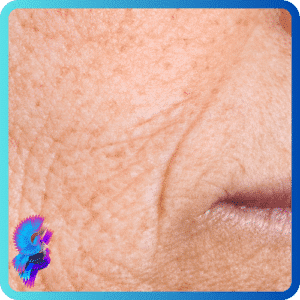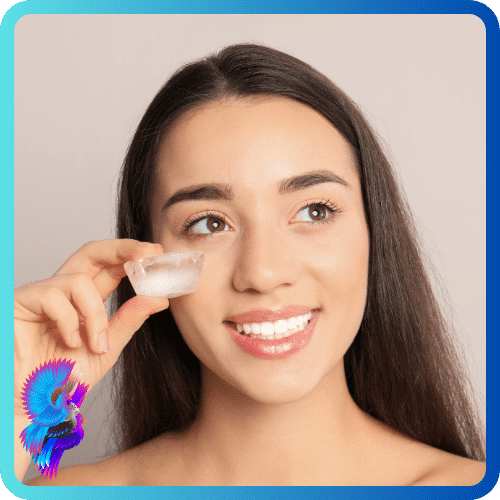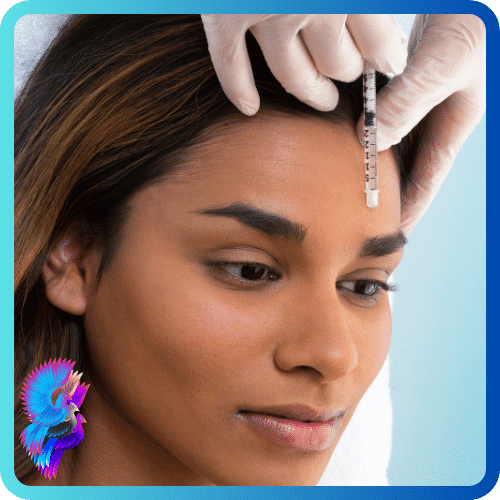Advertisements
A Guide for Busy People
Do you want to have healthy and youthful-looking skin but don’t have much time or money to spend on expensive treatments and products?
If so, you’re not alone.
Many people struggle with keeping their skin smooth and wrinkle-free as they age, especially with the stress and pollution of modern life.

But don’t worry; there are some simple and effective ways to prevent wrinkles and maintain your skin’s elasticity and glow.
In this article, we’ll share with you some of the best tips to limit skin aging, based on scientific evidence and expert advice.
You’ll learn how to protect your skin from the sun, use a retinoid, moisturize properly, eat right, sleep well, avoid smoking, and more.
By following these tips, you’ll be able to keep your skin looking its best for years to come. And the best part is that you don’t need to spend a lot of time or money to do it.
All you need is some dedication and consistency.
Ready to get started? Let’s dive in!
- Protect yourself from the sun,
It’s a well-known fact that exposure to the sun can damage your skin, leading to premature aging and wrinkles.
According to a 2013 study, regular sunscreen use can slow down the signs of aging skin.
To protect your skin from the sun’s damaging ultraviolet (UV) rays, it’s vital to apply an SPF of between 30 and 50 every day, even if it’s overcast.
UV rays can still penetrate clouds, so don’t skip sunscreen just because it isn’t sunny.
For extra protection, wear a wide-brim hat, light-colored clothes that’ll reflect the sun, and sunglasses with UV protection.
- Use a retinoid.
Retinoids, which are derived from vitamin A, are one of the most studied anti-aging ingredients.
Sometimes referred to as retinoids, retinoids can increase collagen production, which helps plump up the skin.
Retinoids also encourage skin regeneration and can promote the creation of new blood vessels, which may help improve the skin’s overall appearance and texture.
There are five main types of retinoids, each with slightly different degrees of potency.
Some are available as creams and gels that you can buy over the counter, while others are available by prescription only.
Dermatologists recommend starting with a small amount to test your skin’s tolerance to the product and using it every other day to avoid peeling.
- Use a moisturizer,
Moisturizing your skin is essential for keeping it hydrated and preventing dryness and flakiness.
Dry skin can make wrinkles more visible and cause irritation and inflammation.
Avoid fragrances and any products that aren’t gentle on your skin.
“Irritation causes dryness and more damage,” says dermatologist Melissa Piliang, MD.
Instead, find moisturizers with ceramides that replenish your skin and alpha-hydroxy acids (AHAs) that exfoliate and soften it.
Apply moisturizer twice a day, after cleansing your face in the morning and before going to bed at night.
- Stay hydrated,
Drinking enough water is good not only for your overall health but also for your skin. Water helps flush out toxins from your body and keeps your cells plump and hydrated.
Dehydrated skin can look dull and saggy and make wrinkles more noticeable.
Aim for at least eight glasses of water per day, or more if you exercise or sweat a lot.
You can also hydrate your skin by eating foods that are rich in water content, such as fruits and vegetables.
- Eat right,
Your diet plays a big role in how your skin looks and ages.
Eating foods that are high in sugar and refined carbs can spike your blood sugar, triggering the release of insulin.
Insulin causes inflammation in your skin and all over your body.
“Sugar binds to the elastic and collagen fibers that make skin look plump and youthful.
Damage to these fibers means less support for your skin—and more wrinkles,” explains Dr. Piliang.
On the other hand, eating a balanced diet with lots of healthy fats from olive oil, avocado, nuts, and fish will nourish your skin.
Your skin also loves antioxidant-rich fruits and vegetables and lean proteins.
These foods can help fight free radicals, boost collagen production, and repair skin damage.
- Sleep on your back,
Sleeping itself can help you avoid wrinkles, but it also matters how you sleep.
For example, sleeping on your side can cause deeper wrinkles on your forehead, while sleeping on your stomach can make wrinkles around your nose worse.
To minimize the look of wrinkles, train yourself to sleep on your back.
You might place long body pillows to cushion your sides and prevent you from rolling over as you sleep.
Another tip is to use a silk or satin pillowcase instead of a cotton one.
Silk and satin pillowcases are smoother and softer and can reduce friction and pressure on your skin as you sleep.
- Don’t smoke,
Smoking causes havoc beyond your heart and lungs, damaging your skin, too.
“Smoking makes the little blood vessels in the skin constrict,” explains Dr. Piliang.
“Over time, the collagen and elastic fibers are damaged, and your skin gets more wrinkled.”
Smoking also depletes your skin of oxygen and nutrients and makes it harder for your skin to heal from wounds or infections.
If you’re a smoker, quitting is one of the best things you can do for your skin and your overall health.
You’ll notice a difference in your skin’s appearance and texture within weeks of quitting.
- Relax,
Stress can take a toll on your skin, too.
When you’re stressed, your body releases a hormone called cortisol, which can increase inflammation, break down collagen, and impair skin barrier function.
Stress can also make you frown or squint more often, which can create or deepen expression lines on your face.
To reduce stress and relax your facial muscles, try some of these techniques:
Meditate or practice mindfulness.
Do some yoga or stretching exercises.
Listen to soothing music or sounds.
Breathe deeply and slowly.
Massage your face with gentle circular motions.
Smile or laugh more often.
As you can see, there are many ways to prevent wrinkles and keep your skin smooth and wrinkle-free.
By following these tips consistently, you’ll be able to enjoy healthy and youthful-looking skin for longer.
Remember that it’s never too late to start taking care of your skin.
The sooner you start, the better results you’ll get.
Advertisements




























